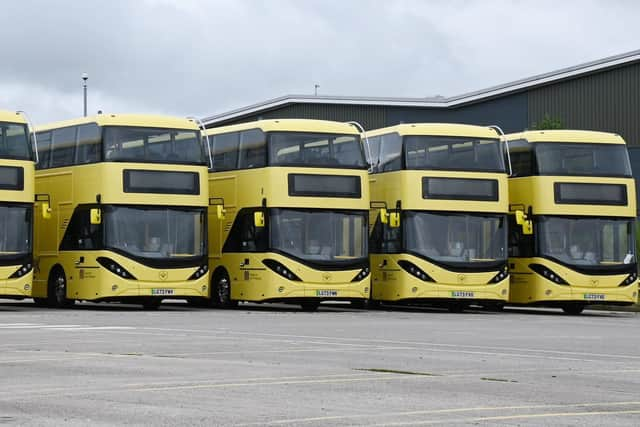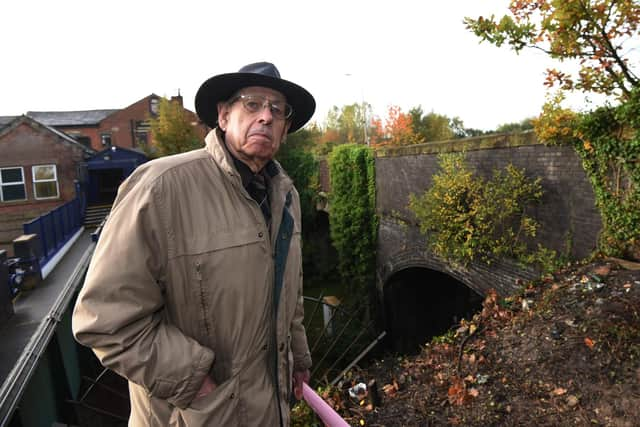Multi-million pound cost of revamp of Bee Network buses revealed under Freedom of Information request
and live on Freeview channel 276
The Bee Network – Greater Manchester’s version of an integrated, “London-style” transport system – was launched in September and saw bus services brought under public control for the first time in nearly 40 years.
It has seen yellow buses operating on roads across Wigan and other parts of Greater Manchester, replacing the services that ran before.
Advertisement
Hide AdAdvertisement
Hide AdA response to a request under the Freedom of Information Act (FOI) disclosed that a total of 758 buses were being rebranded, at a cost of £7,000 for each double-decker and £6,000 for a single-decker – a total cost of £4,927,000.


The buses referred to in the FOI relate to the existing fleet, which includes vehicles provided by operators, other existing vehicles and interim diesel vehicles that will be retained by the Bee Network. It does not include the new fleet, such as zero-emission electric buses, which are already fully Bee Network-branded.
The average age of buses within the used fleet that have been co-branded to date is around eight years.
The FOI was submitted by campaigner and automobile historian Dave Culshaw, from Hindley, who said: "Does it really matter what colour a bus is, so long as its destination number is clearly visible and it arrives on time?


Advertisement
Hide AdAdvertisement
Hide Ad"The 'canary yellow' branding which is now taking place can thus be construed as a very expensive vanity exercise."
A number of bus routes serving the Wigan area were re-numbered this month as part of the roll-out of the second phase of the Bee Network.
Transport for Greater Manchester (TfGM) said it had taken a "strategic approach" to branding to make sure that older buses which are likely to be decommissioned sooner did not receive a full rebrand, but instead had much more cost-effective interim branding with stickers, making it clear the bus was still part of the Bee Network.
The majority of the fleet is sourced from Greater Manchester with less than 20 per cent of vehicles (currently branded) sourced elsewhere – from Oxford, London and the North East.
Advertisement
Hide AdAdvertisement
Hide AdIn response to the information contained in the FOI response, a TfGM spokesperson said: “Customer experience is at the heart of the Bee Network and in the early stages of development of the branding, our customers were very clear that the mass of operator logos and brands made travelling on public transport in Greater Manchester confusing and difficult to navigate.
“The Bee Network as a simple, consistent, singular brand removes that confusion and makes it easier for people to understand how to get onto the network, how to use it, what ticket to buy and increases the chances of them using public transport.
“Our forecasts also showed that branding buses would pay for itself in less than two years and since the introduction of Bee Network franchised buses last September, we have already seen an increase in bus patronage, so we know our approach is working.”
Comment Guidelines
National World encourages reader discussion on our stories. User feedback, insights and back-and-forth exchanges add a rich layer of context to reporting. Please review our Community Guidelines before commenting.